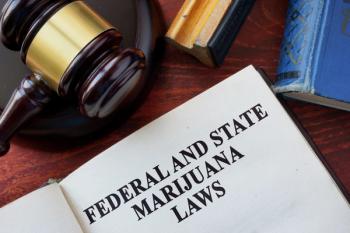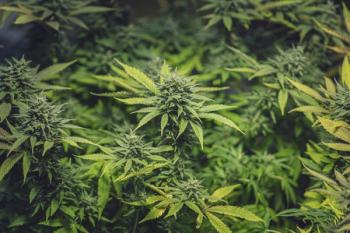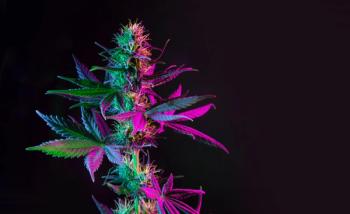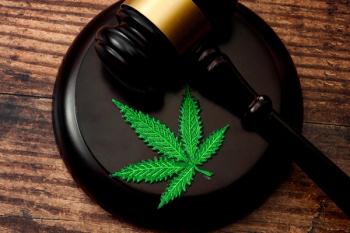
- Drug Topics September 2022
- Volume 166
- Issue 9
Drug Testing Challenges Emerge With CBD Product Use
Even “THC-free” cannabidiol products may contain trace amounts of THC.
Selling cannabidiol (CBD) products in the pharmacy can be tough, and not just because of misinformation or retail competition. Due to a lack of regulation, undeclared tetrahydrocannabinol (THC) is common in topical and oral CBD products, including products claiming to be THC-free.1,2 Pharmacists recognize the potential for positive drug tests for those using CBD products.
“Anybody who has a Commercial Driver License—a truck driver—I basically refuse to sell CBD to them, because they can lose their livelihood from a positive THC test,” said Cory G. Garvin, PharmD, president and owner of Wester Drug in Muscatine, Iowa.
A study published in June 20201 found widespread mislabeling across 105 topical CBD products purchased from brick-and- mortar retail outlets and online. THC was detected in 27 (35%) of the products, including 4 products (11%) labeled as THC-free. Most of the THC-containing products did not reference THC on the label.
“We know from research in my lab that pure CBD products— oral or vaped—do not trigger positive drug tests for cannabis,” explained Tory R. Spindle, PhD, assistant professor of psychiatry and behavioral sciences at Johns Hopkins University School of Medicine Behavioral Pharmacology Research Unit. “However, products that contain even trace amounts of THC, within legal limits to be considered hemp, can produce positive tests, especially with regular use.”
A similar study of oral CBD products2 found greater mislabeling. Of 80 CBD products purchased from physical and online retailers, 52 (65%) contained THC in amounts ranging from 0.008 mg/mL to 2.071 ng/mL. Of the 21 products labeled THC-free, 5 (23.8%) contained between 0.015 mg/mL and 0.656 mg/mL THC. Epidiolex (cannabidiol), the sole FDA-approved CBD formulation, contained 0.022 ng/mL THC.
“Consumers who are interested in taking CBD are at a complete loss,” said senior author Shanna Babalonis, PhD, assistant professor of behavioral science, University of Kentucky College of Medicine Center on Drug and Alcohol Research. “They don’t know what is in their products, they can’t trust the labels, and they can’t trust certificates of analysis if there is one. If you test positive, there is no way to distinguish this THC contamination from smoking a joint or using any other marijuana product.”
Tim Gregorius, RPh, vice president of operations for PRS Pharmacy Services suggested stocking only THC-free products. PRS and a few other manufacturers use QR codes on product labels to link each container to a certified certificate of analysis. Iowa requires QR codes linking to certificates of analysis on all CBD labels; Garvin said he goes 1 step further and checks each batch to match certificate, batch, expiration, and product analysis.
The problem stems from the federal classification of marijuana, or Cannabis sativa, as a Schedule I controlled substance. The 2018 Farm Bill3 exempted hemp containing less than 0.3% delta-9 THC by dry weight from the Controlled Substances Act, but that exemption specifies hemp as an agricultural product. Nothing in the Farm Bill defines allowable THC levels in finished hemp products such as salves, oils, tinctures, capsules, gummies, or other edibles after the plant biomass has been removed, Babalonis explained. Regulation is up to individual states, all of which have taken different approaches. The CBD industry uses a 0.3% THC cutoff for convenience and marketing.
Federal regulations assess THC levels in people, not products. The Department of Transportation (DOT) has an initial urine-based testing cutoff of 50 ng/mL for marijuana metabolites and a confirmatory cutoff of 15 ng/mL, Garvin explained. Private employers can set their own cutoff levels.
DOT covers what are known as safety-sensitive employees: pilots, school bus drivers, truck drivers, train engineers, transport vehicle operators, aircraft maintenance personnel, fire-armed transit security personnel, ship captains, and pipeline emergency response personnel, among others. “Since the use of CBD products could lead to a positive drug test result,” the agency cautioned in 2020, “Department of Transportation–regulated safety-sensitive employees should exercise caution when considering whether to use CBD products.4
Enforcement of state DUI laws is another potential hazard. Some field tests are quantitative, Garvin said, and some are qualitative. Some are specific for THC and some test for any cannabinoid. “I spend a lot of time educating my patients to make sure they understand potential testing issues,” Garvin said. “My advice is to talk with their employer or whoever is doing the testing to find out the kind of tests being used, the cutoffs, and whether CBD products are allowed. I try to minimize risks to the patient and in doing so, I also minimize my own liability.”
References
1. Spindle TR, Sholler DJ, Cone EJ, et. al.
2. Johnson E, Kilgore M, Babalonis B. Cannabidiol (CBD) product contamination: Quantitativeanalysis of Δ9-tetrahydrocannabinol (Δ9-THC) concentrations found in commercially available CBD products. Drug Alcohol Depend.2022;237:109522. doi:10.1016/j.drugalcdep.2022.109522. doi:10.1016/j.drugalcdep.2022.1095522
3. The Agriculture Improvement Act of 2018, Pub.L. 115-334 (Farm Bill); p. 420, Subtitle G—Hemp Production.
4. U.S. Department of Transportation, DOT “CBD” Notice. February 18, 2020. Accessed August 11, 2022.
Articles in this issue
over 3 years ago
Tips for Managing Diabetes Comorbiditiesover 3 years ago
The Evolution of the CBD Regulatory Landscapeover 3 years ago
Women and CBD: Increased Interest, but Caution Is Warrantedover 3 years ago
Mitigating Costs of Cancer Treatment: The Role of Pharmacistsover 3 years ago
Counseling Pearls for CBDover 3 years ago
Waste Problem Shows COVID-19 Vaccines Aren’t Just a Dime a Dozenover 3 years ago
CBD Products: What Pharmacists Need to KnowNewsletter
Pharmacy practice is always changing. Stay ahead of the curve with the Drug Topics newsletter and get the latest drug information, industry trends, and patient care tips.























